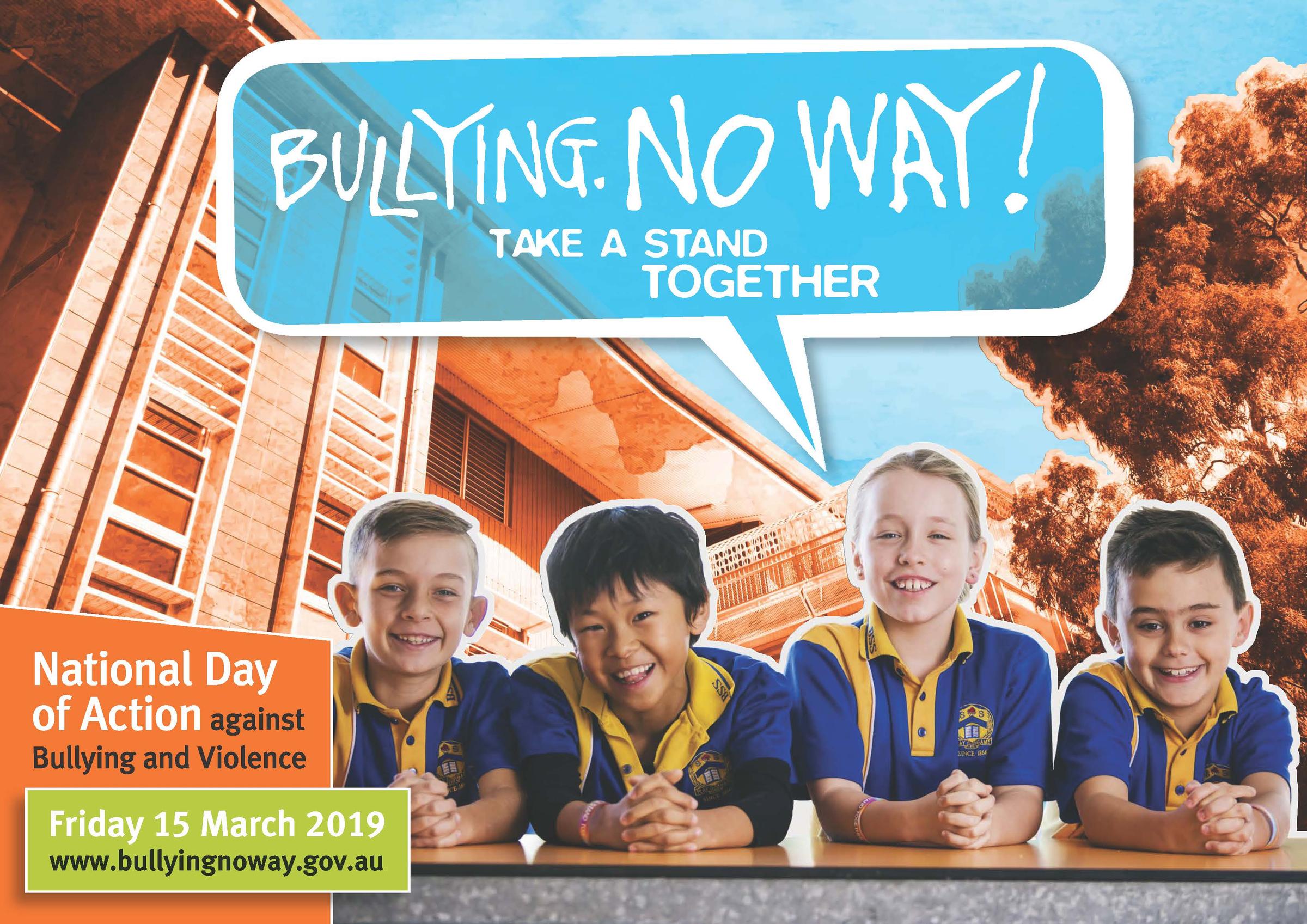Bullying. NO WAY!

NATIONAL DAY OF ACTION
Friday, March 15 has been declared a National Day of Action (NDA) Against Bullying & Violence. Our school has signed up to be a partner in this effort.
The NDA gives schools the chance to take action and empower young people to be part of the solution when addressing bullying in their school community. It provides an opportunity to focus on bullying and the big changes we can make to create safer communities for everyone.
Parents are an important part of our work to prevent bullying and to respond effectively if it happens. Stopping bullying involves everyone.
We understand that parents know their children best and know the best way to tailor communication to their needs. We suggest you adapt these tips to what works for you and your child.
If your child talks to you about bullying:
- Listen calmly and get the full story. Your calm response is important to allow your child to tell you all about the situation. After they’ve told you their story, ask questions to get more details if you need: who, what, where, when. Although you may feel some strong emotions about your child’s experience, try to keep calm to avoid more distress to your child.
- Reassure your child they are not to blame. Many children blame themselves and this may make them feel even worse. You could say things like, ‘That sounds really hard to deal with. No one should have to put up with that.’ or ‘I’m so glad you told me. You should be able to feel safe at school; that’s not fair at all’.
- Ask your child what they want to do and what they want you to do. A critical part of your response is to avoid jumping in to solve the problem. While it is natural to want to protect your child, helping them to find their own solution is a better option. It helps them feel they have some power in the situation.
- Visit www.bullyingnoway.gov.au to find some strategies. The website has tips and ideas for different bullying situations. One idea is to practice strategies at home to help your child feel more confident.
- Contact the school. Your child may be reluctant for you to do this, so discuss the idea and reassure them that the school would want to know and is able to help. Make an appointment to meet with your child’s teacher and, if you need to, ask to talk with the principal. Contact the school immediately if you have a concern about your child’s safety.
- Check in regularly with your child. Keep the conversation going. It can take time to resolve issues, so check in regularly with your child about their experiences and their feelings. Your ongoing support is important.
If you are looking for support for yourself to deal with a bullying situation, you will find ideas on the Bullying. No Way! website for parents. As well, please feel free to contact the school if you would like to discuss any aspect of our approach to preventing bullying.
Thanks for your support to make our school a great place for everyone!
